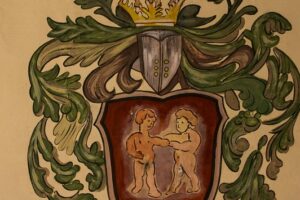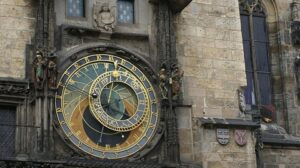Horoscopes Explained: Ancient Wisdom Meets Modern Life
Introduction
Horoscopes have intrigued humankind for centuries, weaving their way through ancient cultures, religious practices, and daily life. They are not merely a blend of twelve zodiac signs or celestial movements but deep-rooted systems of knowledge that have persisted through eras of change. In this article, we delve into the history of horoscopes, the science of astrology, and how these ancient practices intersect with modern life. We will explore the cultural significance of horoscopes around the world, break down the components of a horoscope, and discuss how people can find meaning and guidance through this ancient wisdom.
The Historical Background of Horoscopes
Ancient Beginnings
The origins of astrology can be traced back to ancient Mesopotamia around the 2nd millennium BCE. Astrologers observed celestial patterns and their correlations with earthly events, leading to a fundamental belief that the positioning of stars and planets could reveal information about human affairs. The Babylonians were pioneers in astrological practices, dividing the sky into twelve segments, which laid the groundwork for the zodiac signs we recognize today.
Greek Influence
Astrology evolved further with the integration of Greek philosophical ideas. Notably, the Hellenistic period saw astrologers like Ptolemy document their practices, synthesizing Babylonian concepts with Greek philosophy. Their work popularized astrology throughout the Mediterranean, linking the cosmos with human behavior.
Eastern Contributions
While Western astrology has its roots in Mesopotamia and Greece, Eastern cultures have contributed their interpretations of celestial influences. For example, Vedic astrology, practiced in India, has its own intricate system based on Hindu scriptures that dates back thousands of years. Similarly, Chinese astrology, marked by its twelve animals, offers a unique perspective shaped by cultural beliefs and traditions.
The Renaissance and Modern Adaptations
The Renaissance rekindled interest in astrology across Europe, merging scientific inquiry with astrological practices. However, the rise of empirical science led to skepticism towards astrology, relegating it to the domain of superstition. Despite this, astrology has witnessed a revival in modern times. The advent of the internet has democratized access to astrological knowledge and has introduced a new generation to the wonders of horoscopes.
Understanding the Components of a Horoscope
A horoscope is typically a map of where the planets were located at the exact moment of a person’s birth. It includes various elements—each serving a unique purpose in the astrological analysis.
1. Sun Sign
The most familiar aspect of horoscopes, the sun sign, is determined by the position of the sun at the time of birth. It represents the core of one’s personality and is often seen as the primary driving force behind a person’s identity.
2. Moon Sign
The moon sign provides insight into a person’s emotional landscape and subconscious desires. It represents how individuals respond to emotions and is influenced by the moon’s positioning at birth.
3. Rising Sign (Ascendant)
The rising sign, or ascendant, reflects how one presents themselves to the world. It symbolizes the persona that individuals choose to portray and can greatly influence one’s style, mannerisms, and initial reactions in social settings.
4. Planets and Houses
The positions of the planets at the time of birth impact various aspects of life, from communication (Mercury) to love (Venus) to ambition (Mars). These planets are distributed across twelve houses, each governing specific life areas:
- 1st House: Self and identity
- 2nd House: Finances and resources
- 3rd House: Communication and learning
- 4th House: Home and family life
- 5th House: Creativity and romance
- 6th House: Work and health
- 7th House: Partnerships and relationships
- 8th House: Transformation and shared resources
- 9th House: Philosophy and travel
- 10th House: Career and public image
- 11th House: Community and friendships
- 12th House: Subconscious and spirituality
5. Aspects
Aspects refer to the angles formed between planets, influencing their interaction. Major aspects include conjunctions, sextiles, squares, trines, and oppositions, each conveying different energies that shape experiences and behaviors.
The Science Behind Astrology
Astrology vs. Astronomy
While astrology uses celestial movements to derive insights into human affairs, astronomy is the scientific study of celestial objects and their phenomena. Though historically intertwined, the domains diverged during the Age of Enlightenment, with astronomy taking on a more empirical approach.
The Question of Validity
Critics often argue that astrology lacks scientific merit. However, proponents highlight its value as a tool for self-reflection and personal growth, emphasizing its psychological, if not scientific, benefits. Findings in fields such as psychology show that belief in horoscopes can provide comfort, motivation, and a sense of agency in an unpredictable world.
Confirmation Bias
One reason astrology continues to resonate is confirmation bias. Individuals tend to remember hits and forget misses, reinforcing their belief in horoscopes. Moreover, the generalized language of astrological predictions allows individuals to interpret messages in a way that aligns with their personal experiences.
Cultural Significance of Horoscopes
Horoscopes engage varied cultural interpretations, showcasing a rich tapestry of beliefs and practices across the globe.
Western Astrology
In the West, horoscopes often serve as popular entertainment. Weekly or monthly predictions in newspapers, magazines, and online platforms engage audiences who enjoy applying these insights to their lives. Astrology parties and workshops have sprung up in urban settings, where enthusiasts gather to explore their charts and discuss interpretations, fostering community.
Vedic Astrology
In India, Vedic astrology holds significant cultural prominence. The practice extends beyond individual horoscopes to include auspicious timings for events like weddings or business ventures. A person’s horoscope may even determine compatible matches in arranged marriages, highlighting astrology’s role in social structures.
Chinese Astrology
Chinese astrology emphasizes a cyclical understanding of time, revolving around a twelve-year cycle represented by various animals. Each animal corresponds to certain personality traits, and individuals may identify with the characteristics associated with their birth animal. The Chinese New Year marks a shift in energies, leading individuals to consult horoscopes for guidance on the upcoming year.
Indigenous Astrological Practices
Many indigenous cultures worldwide have their astrological systems, often intertwining with their cosmologies, spiritual beliefs, and ecological understandings. These approaches vary significantly and emphasize a relational worldview, recognizing the interconnectedness of human experiences with celestial bodies.
How to Approach Astrology in Modern Life
Horoscope as a Tool for Self-Reflection
In an era defined by rapid change, individuals often seek insights into their identities and life trajectories. Horoscopes can serve as mirrors, helping people confront challenges, recognize strengths, and explore desires. The reminder to pause and reflect, perhaps during a moment of uncertainty, can yield transformative insights.
Setting Intentions
Using astrology to set intentions is popular among many practitioners. At the beginning of a new lunar cycle or year, individuals may reflect on their chart’s information to clarify goals, align actions with personal values, and chart a course toward fulfillment.
Navigating Relationships
Understanding one’s own astrological profile can enhance interpersonal dynamics. Recognizing patterns and compatibility can help individuals navigate relationships more effectively, encouraging healthy communication and empathy.
Mindfulness and Spiritual Growth
Horoscopes can also offer pathways for mindfulness and spiritual growth. Engaging with one’s astrological chart can deepen self-knowledge, encourage accountability, and promote a sense of connection to the universe. For many, astrology represents a spiritual practice rather than a deterministic map of fate.
The Future of Horoscopes
Technology and Accessibility
Advancements in technology will continue to shape the landscape of horoscopes. Astrological apps and online platforms simplify chart creation and interpretation, making the wisdom of astrology more accessible than ever. Interactive elements, such as online communities or personalized readings, enhance user engagement.
Crossing Disciplines
The intersection of astrology with psychology, mindfulness practices, and coaching will likely expand. Astrological insights can complement therapeutic practices, providing clients with frameworks for understanding their emotional responses and behavioral patterns.
Global Perspectives
As the world becomes more interconnected, cross-cultural conversations about astrology will become increasingly common. Traditional practices will blend with contemporary interpretations, giving rise to new astrological languages and understandings that reflect diverse perspectives.
Conclusion
Astrology serves as a bridge between ancient wisdom and modern life, providing valuable insights into the complexities of human existence. While skeptics may question its validity, the enduring appeal of horoscopes lies in their capacity to inspire self-reflection, foster connection, and navigate the uncertainties of life. As we continue to explore the cosmos and our place within it, horoscopes remind us of the timeless human quest for meaning, guidance, and understanding. In an ever-evolving world, turning to the stars may just be the guiding light we need to navigate our paths.


























Add Comment